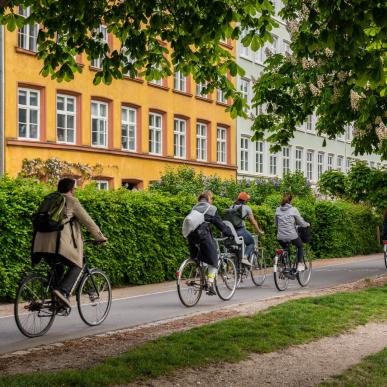

Sustainability & Legacy
Sustainable events in Copenhagen
Considered one of the most sustainable cities in the world, Copenhagen is home to 546 km of bike paths, a fleet of electric harbour ferries and a majority of the hotel rooms around town are eco-certified. So it makes sense that we focus on sustainable event planning too.
Legacy - leaving a positive impact
We believe that events and congresses not only have the potential to influence knowledge exchange, culture, innovation, talent attraction and development, they also have the potential to be catalysts for change and leave positive long-term impact.
Sustainability in action
Just some of the ways events professionals can get involved with sustainability in Copenhagen.
Follow us on LinkedIn
For up-to-the-minute news, insider tips, ideas and examples to help event planners, follow us on LinkedIn.
Sustainability news
Contact us
We’re here to help, whatever stage of planning you’re at, and it doesn’t cost an øre (that’s Danish for penny). Email us at cvb@woco.dk or look for the right person on our contacts page.

Photo:Woco
Contact us
Find an employee
Email
cvb@woco.dk

Photo:Woco

Photo:Woco
Request for proposal
Don’t hesitate to submit your RFP.
Request for proposal















